20 Common Etiquette Mistakes To AVOID When Dining Out
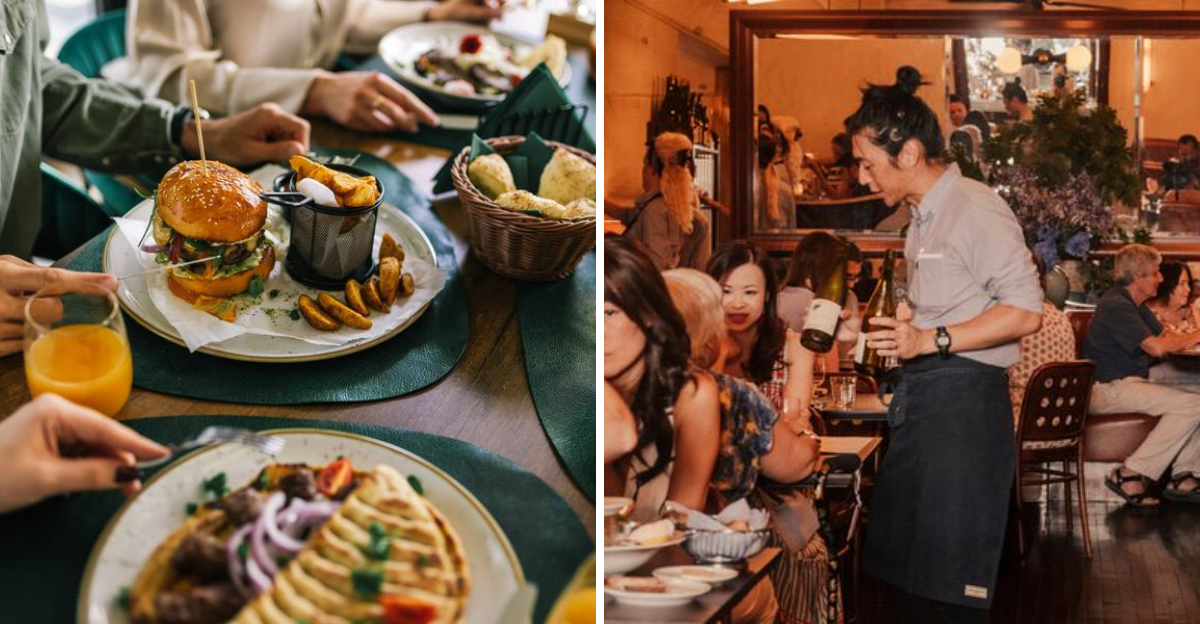
Dining out should be enjoyable for everyone—guests, servers, and fellow diners. But sometimes, bad habits sneak in and turn a nice meal into an awkward or unpleasant experience. Whether you’re at a fast-casual joint or a white-tablecloth restaurant, avoiding these common faux pas can make a world of difference.
1. Ignoring the Host or Hostess

Imagine strolling into a restaurant and bypassing the host stand. It seems harmless, but it can throw the entire seating process out of balance. The host or hostess is there for a reason—to ensure everyone gets a table in an orderly manner. Skipping this step could lead to confusion and delays, not only for you but for other diners, too.
Always approach the host stand and wait your turn to be seated. Not only does this show good manners, but it also helps the staff manage the flow of guests efficiently. In doing so, you contribute to a smoother dining experience for all.
2. Snapping or Waving at Your Server

Snapping fingers or waving wildly to get a server’s attention is often seen as rude and impatient. Servers are juggling multiple tasks, and such gestures can disrupt their workflow. Instead, a simple glance or a polite nod when they look your way can be just as effective.
Remember, servers aim to provide the best experience for everyone. Treat them with respect, and your dining experience will improve. The subtlety of your gestures often reflects your understanding of dining etiquette—and the servers will appreciate your patience.
3. Letting Kids Run Around the Restaurant

Children running between tables can turn a serene dining experience into a chaotic one. Not only does it disrupt other diners, but it also poses safety risks—especially for servers carrying hot food or beverages. Parents should ensure their children understand the importance of staying seated and behaving respectfully.
Bringing activities or engaging them in conversation can keep them occupied. This helps maintain a pleasant ambiance for everyone. The restaurant is a shared space, and teaching children to respect that space contributes to a harmonious dining environment.
4. Being Glued to Your Phone

In today’s digital age, the temptation to check your phone constantly is hard to resist. However, being glued to your screen during a meal can be off-putting to those around you. It sends a message that your dining companions are less important than whatever is happening on your device.
Putting your phone away shows consideration and respect. It fosters genuine connection and conversation. Keep your phone on silent and resist the urge to scroll. This small gesture can significantly enhance the dining experience for everyone at the table.
5. Talking Loudly or Oversharing
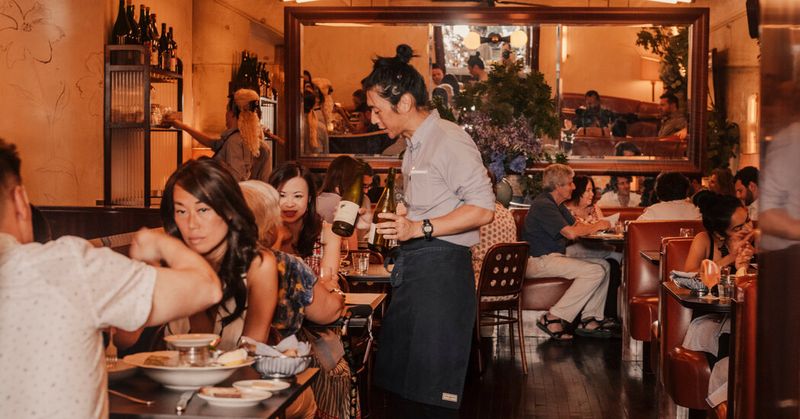
We all love a good conversation, but not everyone in the restaurant needs to hear it. Speaking too loudly can disrupt the ambiance and intrude on other diners’ experiences. Additionally, oversharing personal details in public can make others uncomfortable.
Keep conversations at a moderate volume and be mindful of the topics you discuss. Respecting the shared space helps maintain a pleasant environment for all. It’s about balancing your enjoyment with the comfort of those around you. A considerate approach makes dining enjoyable for everyone involved.
6. Over-Complicating Your Order

Customization is a perk many diners enjoy, but over-complicating orders can slow things down for everyone. Endless modifications can confuse the kitchen and delay service for your table and others. While it’s okay to ask for a few changes, try to keep them within reason.
If dietary needs require adjustments, communicate them clearly and concisely. This helps the staff accommodate your preferences more efficiently. Streamlining your order ensures a smoother dining experience and contributes to a well-functioning service environment.
7. Not Tipping (or Under-Tipping) for Standard Service

Tipping is not just a custom; it’s a way to show appreciation for the service provided. Servers rely on tips as a significant part of their income. Leaving a tip below the standard 18-20% for good service can be disheartening for those who worked hard to make your meal enjoyable.
If service was satisfactory, acknowledge it with a fair tip. Your contribution supports the staff and their dedication to their work. Understanding the importance of tipping reflects your appreciation for the service industry and enhances the dining culture.
8. Critiquing the Food Loudly

Not every dish will meet your expectations, but loudly expressing dissatisfaction can ruin the atmosphere for others. If you’re unhappy with your meal, it’s best to address it discreetly. Politely inform your server of any issues, giving them a chance to correct it.
Broadcasting complaints to the entire restaurant isn’t constructive. Maintaining a considerate demeanor ensures a pleasant environment for everyone. Respectful feedback often results in positive resolutions, aligning with the restaurant’s commitment to customer satisfaction.
9. Taking Up a Table Forever When It’s Busy
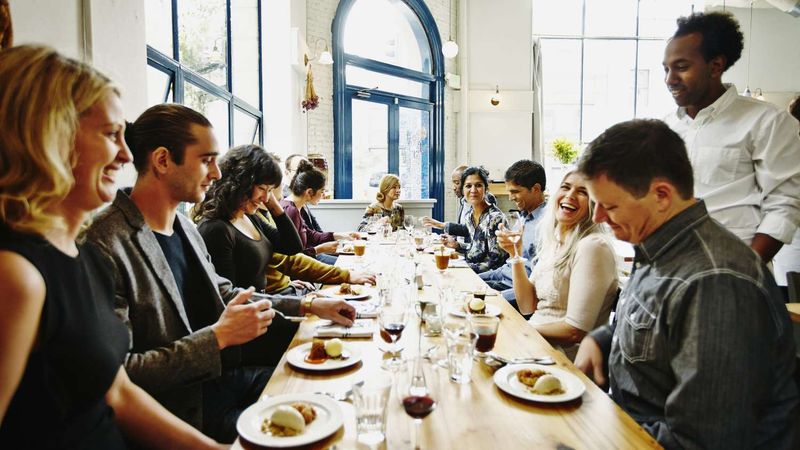
During peak dining times, lingering at your table after finishing can be inconsiderate to waiting patrons. While it’s enjoyable to chat and relax, it’s important to be mindful of the restaurant’s flow and other guests waiting for a chance to dine.
Consider moving to a bar area or another setting to continue your conversation. This kindness helps the staff accommodate more guests and keeps the dining experience smooth for everyone. Your thoughtfulness can leave a positive impression on both the staff and fellow diners.
10. Touching Other People’s Food or Drinks
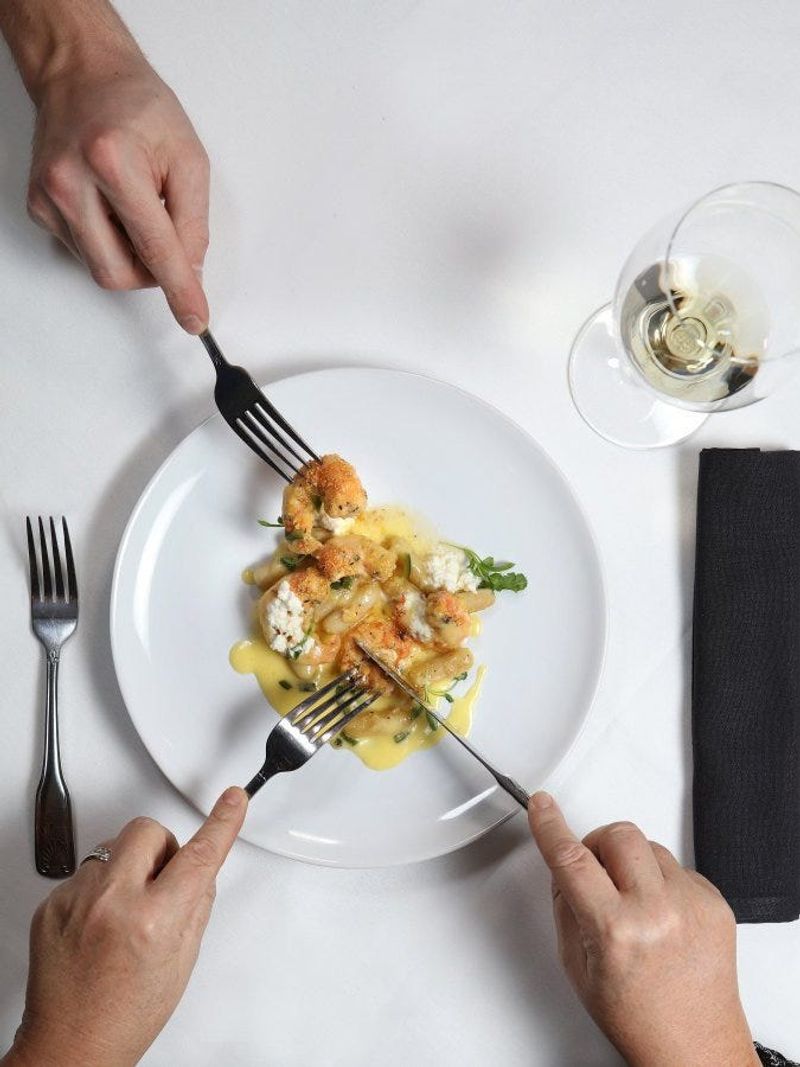
Reaching for a friend’s plate might seem harmless, but it can breach personal boundaries and hygiene protocols. Before sampling someone else’s dish, always ask for permission. This shows respect for their space and acknowledges their personal preferences.
Sharing is a part of dining camaraderie, but it must be consensual and considerate. Maintaining this courtesy ensures a comfortable and respectful dining environment. Encouraging mutual respect can enhance the shared enjoyment of a meal without crossing any lines.
11. Moving Tables Without Asking

Switching tables on a whim might seem trivial, but it can disrupt the restaurant’s flow and seating plan. Servers organize their sections to ensure balanced service. Moving without consulting the staff can cause confusion and disrupt their workflow.
If you wish to change tables, always ask your server or the host. This respect for the restaurant’s operations helps maintain efficiency and harmony. Acknowledging the staff’s efforts in managing the space shows understanding and courtesy.
12. Letting Your Napkin Hit the Floor (and Not Replacing It)
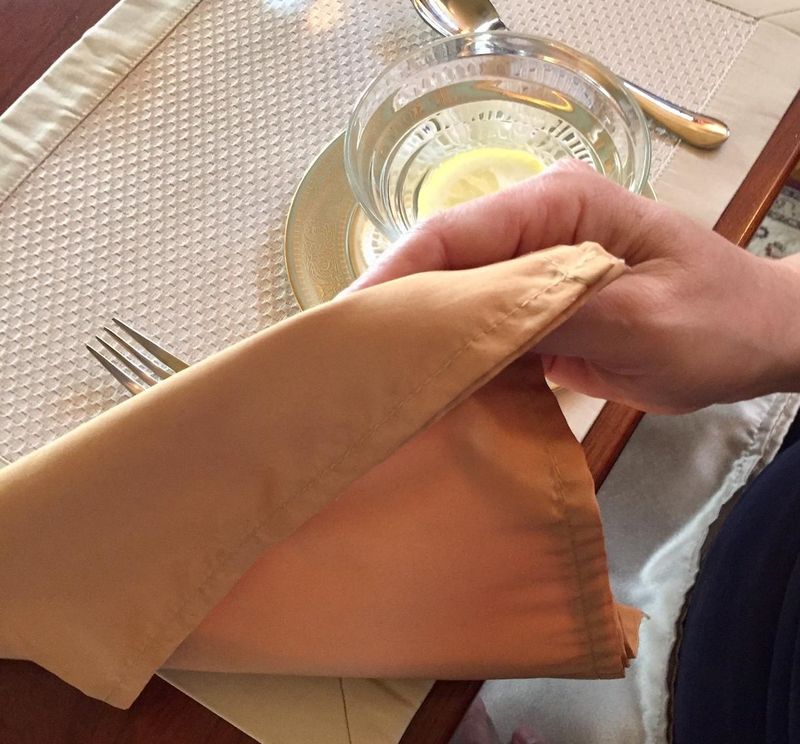
Dropping a napkin might seem innocuous, but picking it up and continuing to use it isn’t hygienic. If your napkin falls, it’s best to request a replacement. This small act demonstrates your commitment to cleanliness and respect for dining standards.
The staff is usually more than willing to provide a fresh napkin. Such attention to etiquette and hygiene reflects positively on your dining habits. It also aligns with maintaining a clean and respectable environment for everyone in the restaurant.
13. Not Saying “Please” or “Thank You”

Simple courtesies like “please” and “thank you” can have a big impact. These words create a respectful and appreciative atmosphere. Servers notice and appreciate when guests use polite language, enhancing the experience for everyone involved.
Expressing gratitude shows that you value the efforts of those serving you. It’s a small gesture that contributes to a positive dining culture. Such basic manners go a long way in making the dining experience enjoyable and respectful for both patrons and staff.
14. Leaving Trash on the Table (in Upscale Spots)

In upscale dining settings, leaving a mess behind can be seen as disrespectful to the staff and the establishment. Wrappers, tissues, and other debris should be placed neatly for the server to clear away. This small act of tidiness shows consideration for those who have worked hard to provide a clean environment.
Such respect for the dining space helps maintain the restaurant’s ambiance. It reflects well on you as a guest and fosters a culture of mindfulness and courtesy. Being tidy is a simple yet effective way to contribute positively to your dining experience.
15. Letting Food Sit Too Long Before Sending It Back
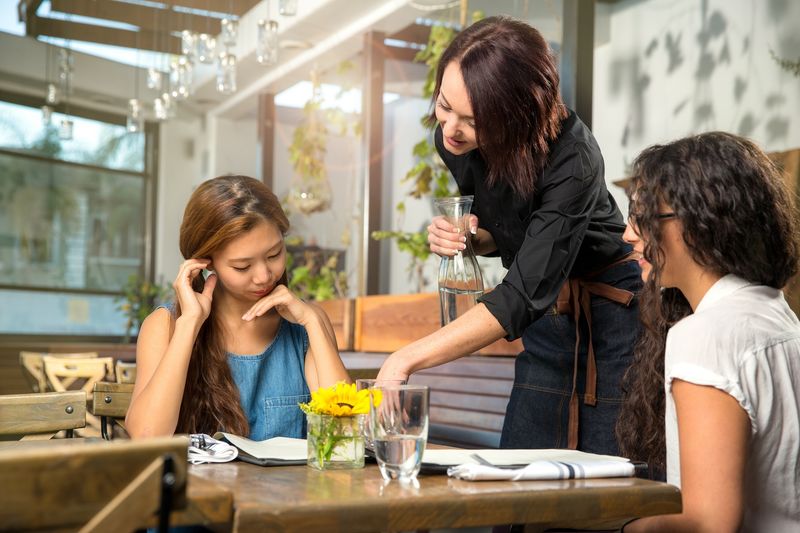
Encountering an issue with your meal is unfortunate, but delaying your feedback can complicate matters. If something is wrong, it’s best to inform your server promptly, allowing them to address the problem immediately. Waiting too long may limit their ability to rectify the issue satisfactorily.
Prompt communication demonstrates respect for the service process and ensures a smoother resolution. This proactive approach shows understanding and appreciation for the efforts of the staff to provide a quality dining experience.
16. Not Reading the Menu and Asking Obvious Questions
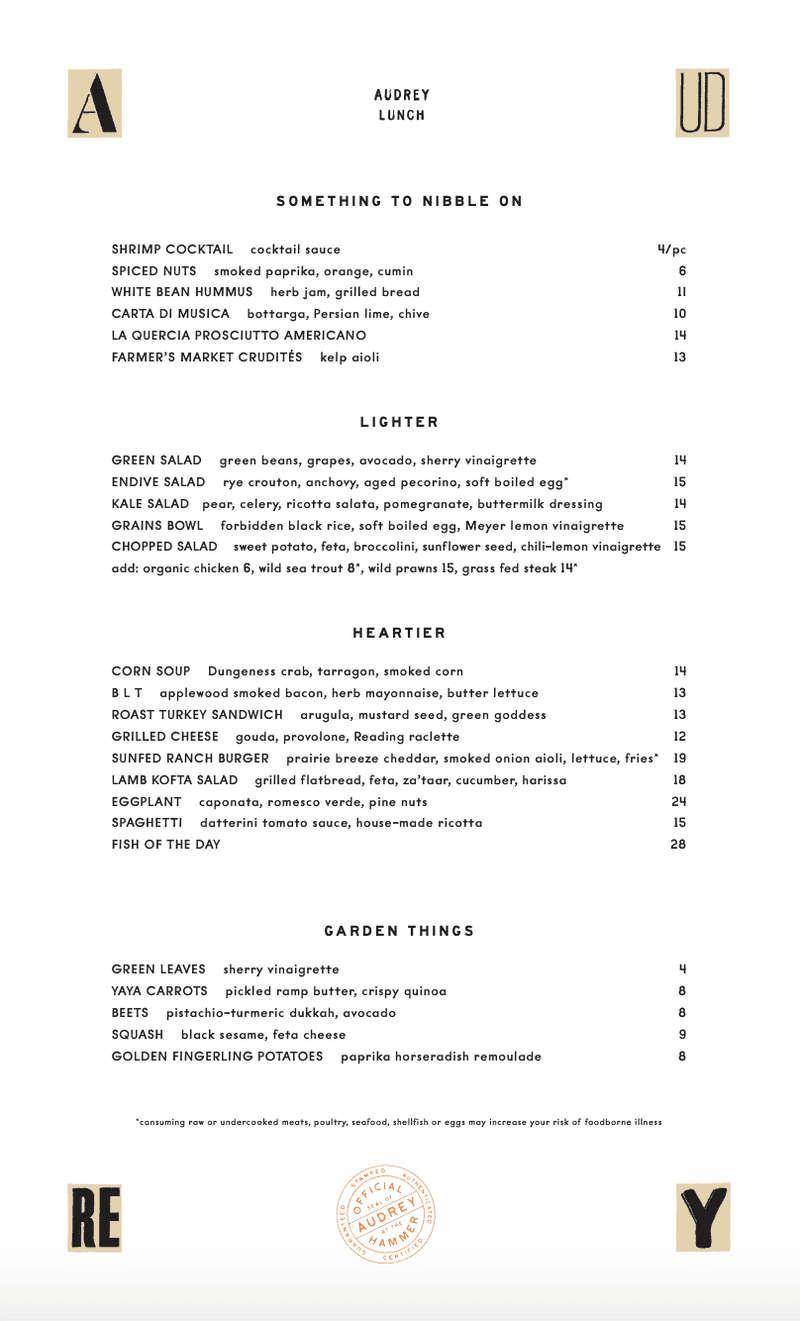
Walking into a restaurant without glancing at the menu might seem harmless, but asking obvious questions can slow down the order process. It’s important to familiarize yourself with the offerings to ensure a seamless dining experience.
If something is unclear, don’t hesitate to ask, but try to avoid questions that are easily answered by what’s printed. This courtesy helps the staff focus on providing excellent service. Being prepared enhances the efficiency and enjoyment of your meal.
17. Complaining Loudly About Prices

Menu prices are usually displayed, so loudly complaining about them can be disruptive. If you’ve chosen to dine at a particular establishment, it’s implied that you accept their pricing. Discussing concerns quietly with your dining companions is courteous.
Understanding the value of what you’re paying for contributes to a positive dining experience. Respecting the restaurant’s pricing structure shows appreciation for their offerings and commitment to quality.
18. Taking Photos for 10 Minutes Before Eating

Capturing a beautiful dish is tempting, but excessive photo-taking can disrupt the dining experience. Prolonged photography can cause your meal to cool and delay others from enjoying their food. A quick photo is fine, but keep it brief to respect the dining pace.
Enjoying the meal while it’s fresh shows appreciation for the chef’s craft. Balancing documentation with eating fosters a respectful dining environment. It’s about enjoying the moment rather than missing it through a lens.
19. Acting Like a Food Critic or “Influencer” to Get Perks

Pretending to be a food critic or influencer to get special treatment can be off-putting to staff and diners alike. Authenticity is key to a genuine dining experience. Demanding perks with an air of entitlement can create discomfort and disrupt the restaurant’s atmosphere.
Engage with the staff respectfully, appreciating the meal and service provided. This approach fosters a positive and inclusive environment where everyone feels valued. Genuine interactions often result in a more fulfilling dining experience.
20. Ignoring Restaurant Policies (Like Closing Time)
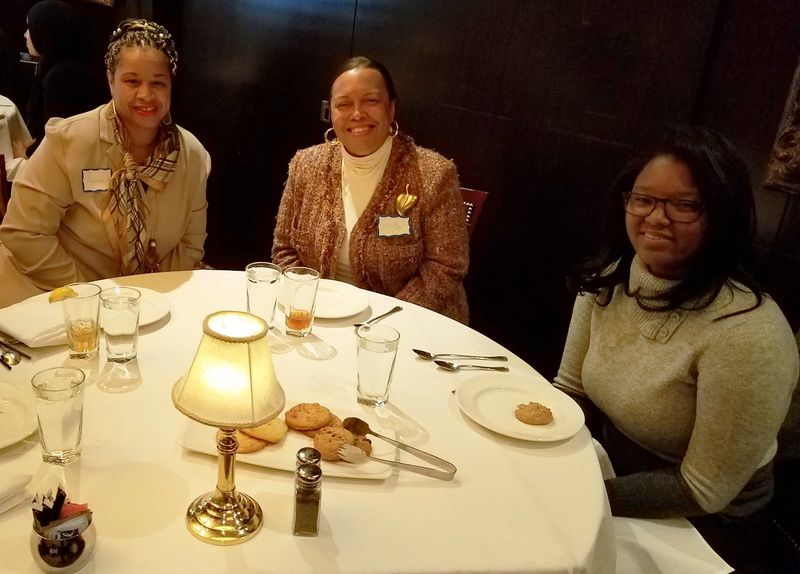
Staying past closing time can be inconsiderate to staff who are eager to finish their shifts. Respecting posted hours shows appreciation for the restaurant’s operations and the workers behind the scenes. It’s crucial to plan your visit accordingly and wrap up your meal in a timely manner.
This respect for the establishment’s policies ensures a smooth and respectful dining environment. Understanding that staff have lives outside of work demonstrates empathy and courtesy, making you a considerate guest.
